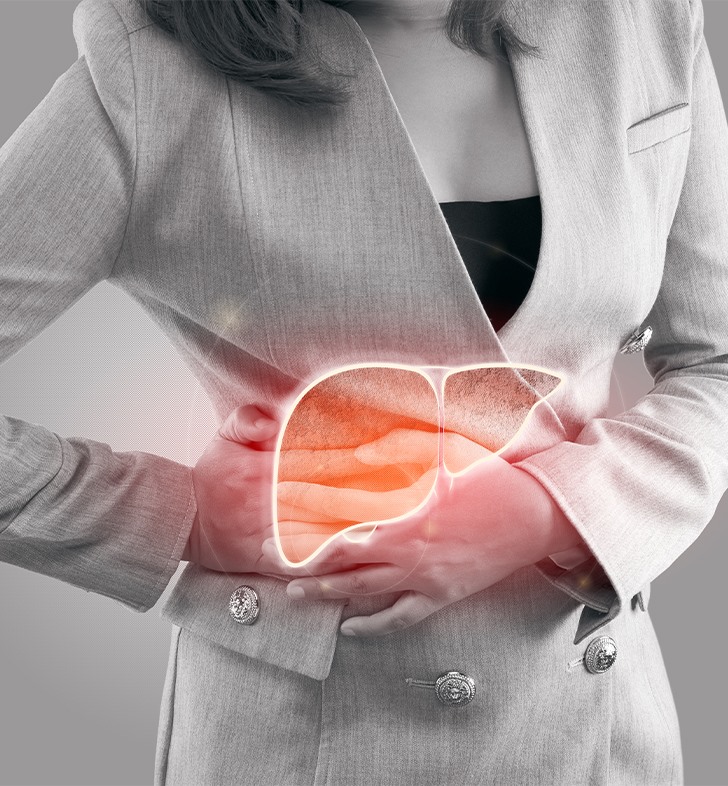
Biliary Stricture
What is biliary stricture? Biliary stricture, also known as bile duct stricture, occurs when the bile duct gets smaller or narrower. The bile duct is the tube that takes bile from the liver to the small bowel. Bile is a substance that helps in digestion of fatty food and excreting (getting rid of) harmful substances. When the bile duct becomes narrow, it makes it difficult for bile to pass from the liver to the small bowel. This reduction in bile to the small bowel leads to difficulty in digesting food, especially fatty food. When bile is not excreted, it builds up in the body and causes several symptoms. Patients with mild biliary strictures may not show any symptoms, but the stricture causes abnormalities in the blood and a rise in some of the liver enzymes. When the stricture becomes more pronounced, symptoms start to develop.
What causes biliary stricture? Biliary strictures can be caused by: Any damage done to the bile duct (for example, after gallbladder removal surgery) Passage of gallstones to the bile duct Infection of the bile ducts Pancreatitis (inflammation of the pancreas) Intestinal (small bowel) injuries Cancer in the bile duct or pancreas
What are the symptoms of biliary stricture? Pain in the upper right side of the abdomen Chills and fever Jaundice (yellowing of the skin or eyes) Itching Nausea or vomiting Gray or pale-colored stools
How is biliary stricture diagnosed?
Biliary stricture can be diagnosed
through different forms of imaging studies that allow doctors to see the bile
duct. Blood tests of the liver and biliary enzymes help the doctor determine if
the patient may have biliary stricture and if an imaging test is needed to
diagnose it.
The doctor may order the following
imaging tests:
- Ultrasound of the liver is the imaging test that
is usually ordered first, as it is easy and safe to perform. It cannot
visualize the stricture if it is small, but in most cases it shows changes in
the biliary tree that suggest biliary stricture.
- CT scan and MRI scan are capable of showing
small strictures and possibly finding out what is causing the stricture.
- In a few cases, a procedure called ERCP
(endoscopic retrograde cholangiopancreatography) is needed. In this procedure,
the doctor uses a special endoscope (a long, flexible tube with a light and
camera at the end) to examine the bile duct. The doctor identifies the place
where the bile duct comes into the intestine and then feeds a tiny catheter (a
plastic tube) into the duct and squirts a contrast agent into the bile system
(and sometimes the pancreas) while X-rays are taken. The contrast agent allows
the doctors to see the ducts of the bile system, gallbladder, and pancreas on
the X-rays. This procedure not only helps diagnose small biliary strictures,
but can also treat the biliary stricture.
How is biliary stricture treated?
There are no medical treatments for
biliary stricture. Most of the times, it can be treated with a procedure, and
possibly a surgery.
There are two procedures that can be
done to open a biliary stricture:
- In ERCP (endoscopic retrograde
cholangiopancreatography), an endoscope (a long, flexible tube with a light and
camera at the end) is advanced through the mouth, esophagus and stomach all the
way to the first part of the small bowel where the bile duct connects to the
small bowel. The stricture can then be opened by inserting a biliary stent (a
metal or plastic tube ) to open the stricture.
- The other procedure that can be done
is called PTHC (percutaceous transhepatic cholangiography), in which a catheter
(drain) is inserted through the right side of the abdominal wall, inside the
liver to the biliary tree. The stricture is kept open with a plastic catheter
that also helps remove the excess bile and keep the stricture open.
- Your doctor will decide which
procedure you will need based on the cause of the stricture and other factors.
- In rare cases, biliary stricture
might require a surgery. Surgery is done to resect (take out) the narrowed part
of the bile duct and then reconnect the healthy bile duct.